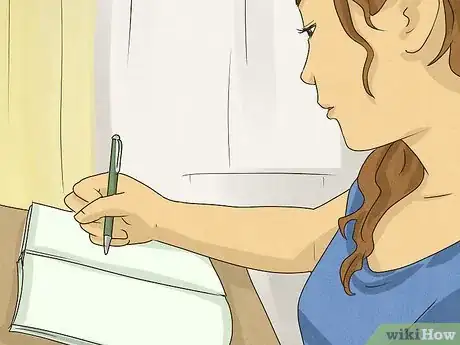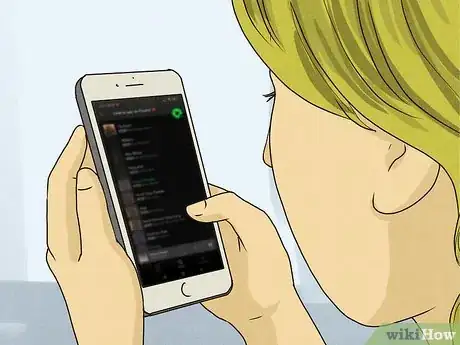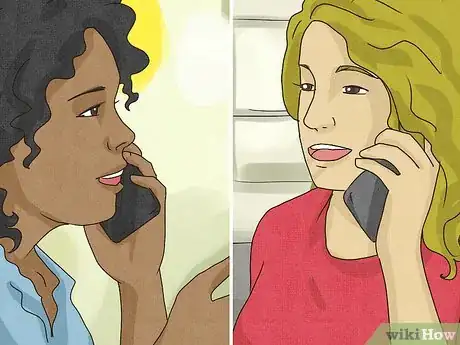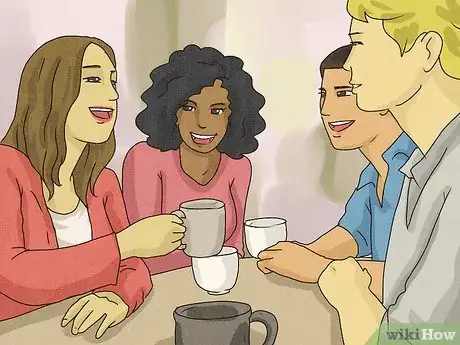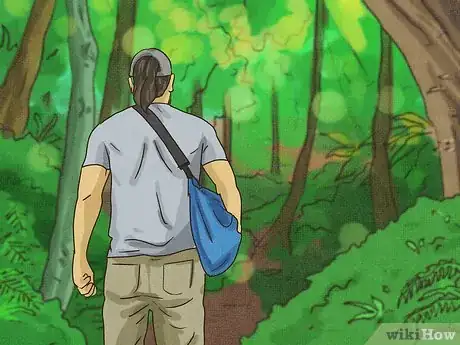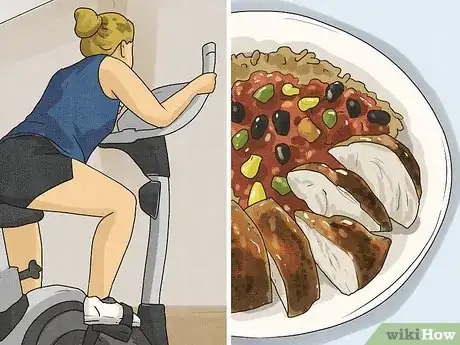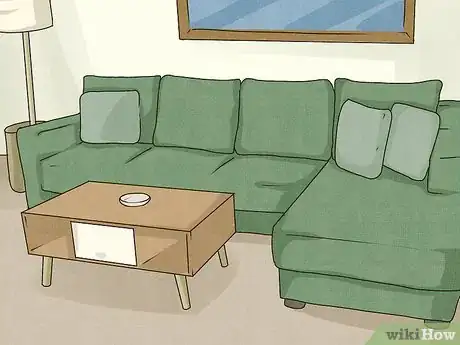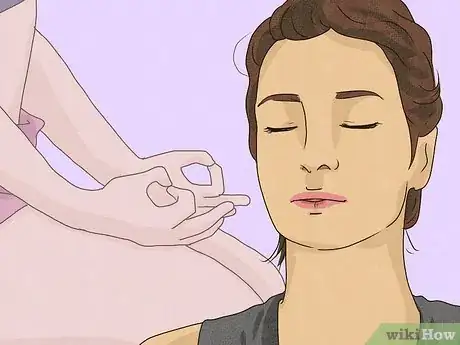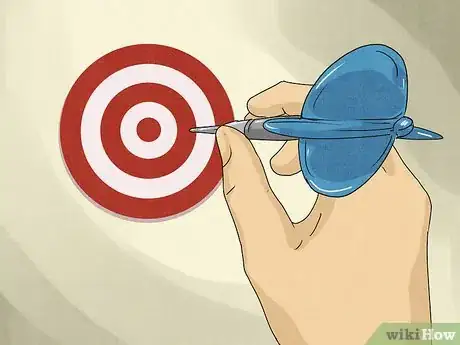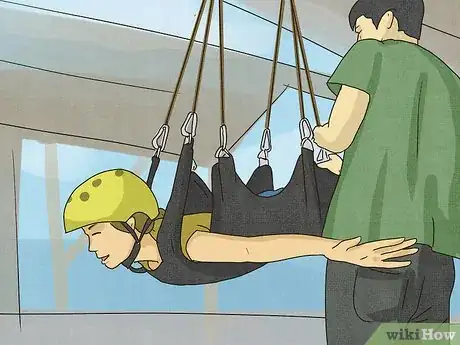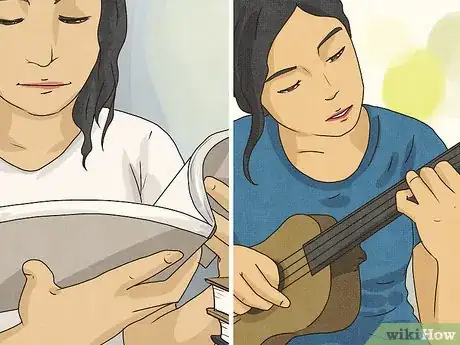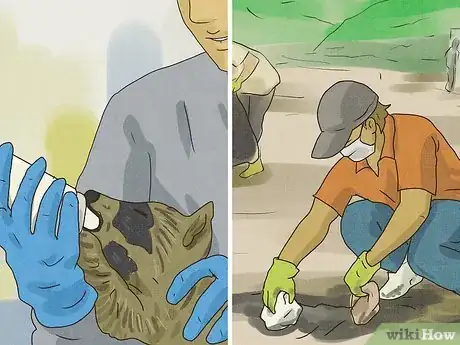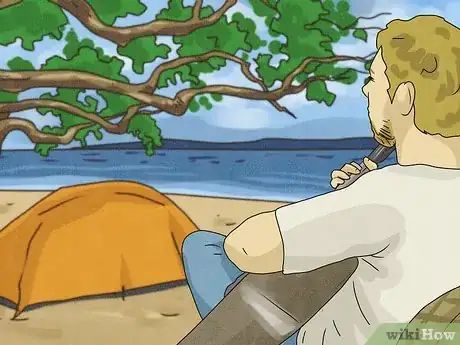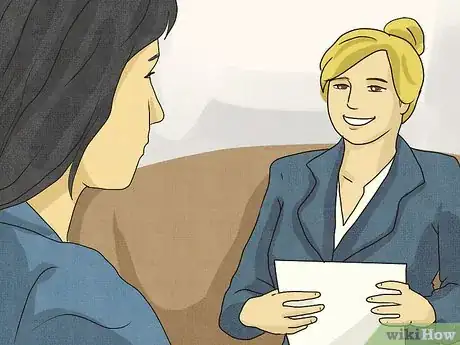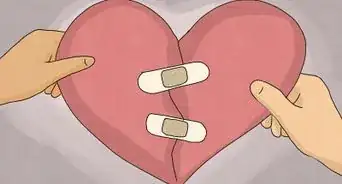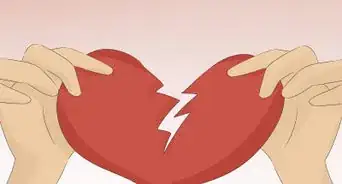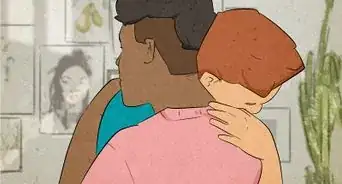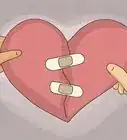This article was co-authored by Susan Pazak, PhD and by wikiHow staff writer, Madeleine Flamiano. Dr. Susan Pazak is a Licensed Clinical Psychologist & Professional Life Coach. With more than 21 years of experience, she specializes in treating adolescents and adults with psychological issues using cognitive behavioral therapy, symptom reduction skills, and behavior modification techniques. She has been featured in numerous media outlets and shows, including “My Strange Addiction". Dr. Pazak holds a BA in Psychology with a minor in Communications from The University of Pittsburgh, an MA in Clinical Psychology from Pepperdine University, and a PhD in Clinical Psychology from Alliant International University.
There are 15 references cited in this article, which can be found at the bottom of the page.
This article has been viewed 20,825 times.
If your relationship just ended, now is actually the perfect time to discover who you are and what you love. You can express yourself, pick up new skills, and focus on your health. There are truly so many ways you can recover and learn how to be alone after a breakup, so we’ll share how to take care of who matters most—yourself.
Steps
Expert Q&A
-
QuestionHow do I stop overthinking after a break up?
 Susan Pazak, PhDDr. Susan Pazak is a Licensed Clinical Psychologist & Professional Life Coach. With more than 21 years of experience, she specializes in treating adolescents and adults with psychological issues using cognitive behavioral therapy, symptom reduction skills, and behavior modification techniques. She has been featured in numerous media outlets and shows, including “My Strange Addiction". Dr. Pazak holds a BA in Psychology with a minor in Communications from The University of Pittsburgh, an MA in Clinical Psychology from Pepperdine University, and a PhD in Clinical Psychology from Alliant International University.
Susan Pazak, PhDDr. Susan Pazak is a Licensed Clinical Psychologist & Professional Life Coach. With more than 21 years of experience, she specializes in treating adolescents and adults with psychological issues using cognitive behavioral therapy, symptom reduction skills, and behavior modification techniques. She has been featured in numerous media outlets and shows, including “My Strange Addiction". Dr. Pazak holds a BA in Psychology with a minor in Communications from The University of Pittsburgh, an MA in Clinical Psychology from Pepperdine University, and a PhD in Clinical Psychology from Alliant International University.
Licensed Clinical Psychologist & Professional Life Coach Listen or watch a positive message on hope, self-love, and healing at least 20 minutes each day. Exercising for at least 30 minutes a day can help too, since it causes your body to release endorphins.
Listen or watch a positive message on hope, self-love, and healing at least 20 minutes each day. Exercising for at least 30 minutes a day can help too, since it causes your body to release endorphins.
References
- ↑ Susan Pazak, PhD. Licensed Clinical Psychologist & Professional Life Coach. Expert Interview. 22 February 2022.
- ↑ https://psiloveyou.xyz/how-to-journal-your-way-out-of-heartbreak-in-7-steps-32dc7ee0cbcb
- ↑ Susan Pazak, PhD. Licensed Clinical Psychologist & Professional Life Coach. Expert Interview. 22 February 2022.
- ↑ https://thespinoff.co.nz/music/14-02-2021/the-fine-art-of-curating-a-breakup-playlist
- ↑ Susan Pazak, PhD. Licensed Clinical Psychologist & Professional Life Coach. Expert Interview. 22 February 2022.
- ↑ https://www.helpguide.org/articles/grief/dealing-with-a-breakup-or-divorce.htm
- ↑ Susan Pazak, PhD. Licensed Clinical Psychologist & Professional Life Coach. Expert Interview. 22 February 2022.
- ↑ Susan Pazak, PhD. Licensed Clinical Psychologist & Professional Life Coach. Expert Interview. 22 February 2022.
- ↑ https://riverview.org/blog/wellness-2/why-you-should-hang-out-with-friends/
- ↑ https://www.theatlantic.com/health/archive/2015/06/how-walking-in-nature-prevents-depression/397172/
- ↑ Susan Pazak, PhD. Licensed Clinical Psychologist & Professional Life Coach. Expert Interview. 22 February 2022.
- ↑ Susan Pazak, PhD. Licensed Clinical Psychologist & Professional Life Coach. Expert Interview. 22 February 2022.
- ↑ https://www.vox.com/first-person/2017/1/3/13938008/breakup-strategies-research
- ↑ https://www.refinery29.com/en-us/what-to-do-after-breakup
- ↑ Susan Pazak, PhD. Licensed Clinical Psychologist & Professional Life Coach. Expert Interview. 22 February 2022.
- ↑ https://www.everyday-mindfulness.org/heartbreak-how-mindfulness-and-meditation-helped-me-heal/
- ↑ Susan Pazak, PhD. Licensed Clinical Psychologist & Professional Life Coach. Expert Interview. 22 February 2022.
- ↑ https://www.takingcharge.csh.umn.edu/set-goals-connected-purpose
- ↑ https://www.ncbi.nlm.nih.gov/pmc/articles/PMC2863117/
- ↑ https://www.nhs.uk/mental-health/self-help/guides-tools-and-activities/five-steps-to-mental-wellbeing/
- ↑ https://www.apa.org/topics/resilience
- ↑ https://www.psychologytoday.com/us/blog/living-single/201608/17-benefits-the-single-life
- ↑ Susan Pazak, PhD. Licensed Clinical Psychologist & Professional Life Coach. Expert Interview. 22 February 2022.
- ↑ https://publichealth.tulane.edu/blog/effects-of-social-isolation-on-mental-health/
